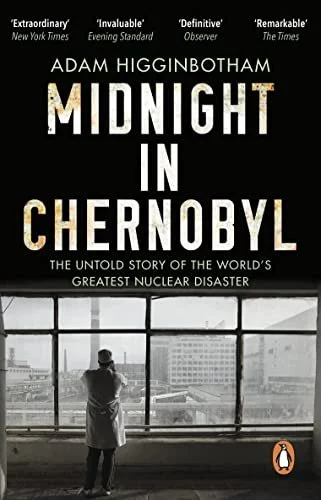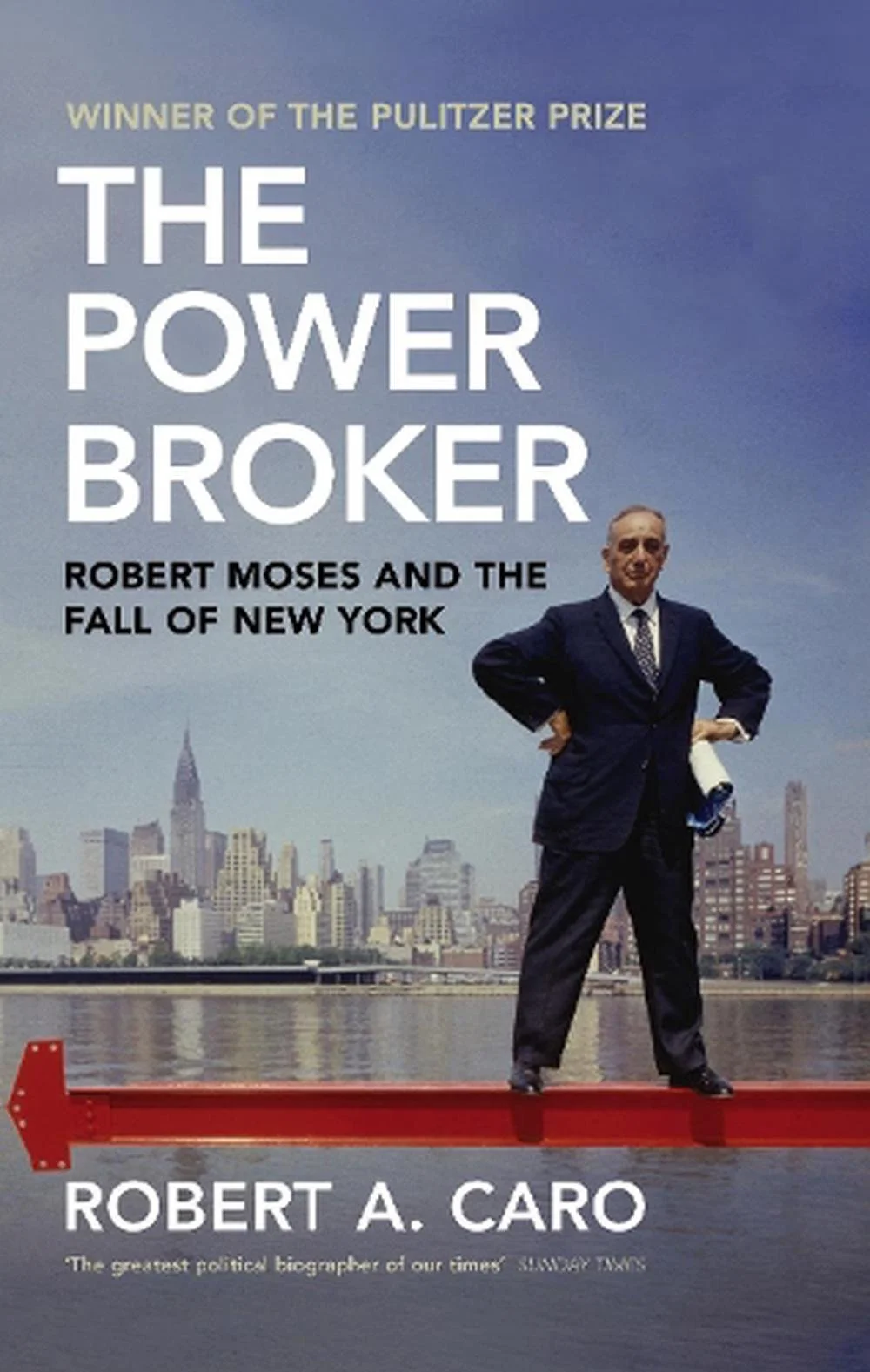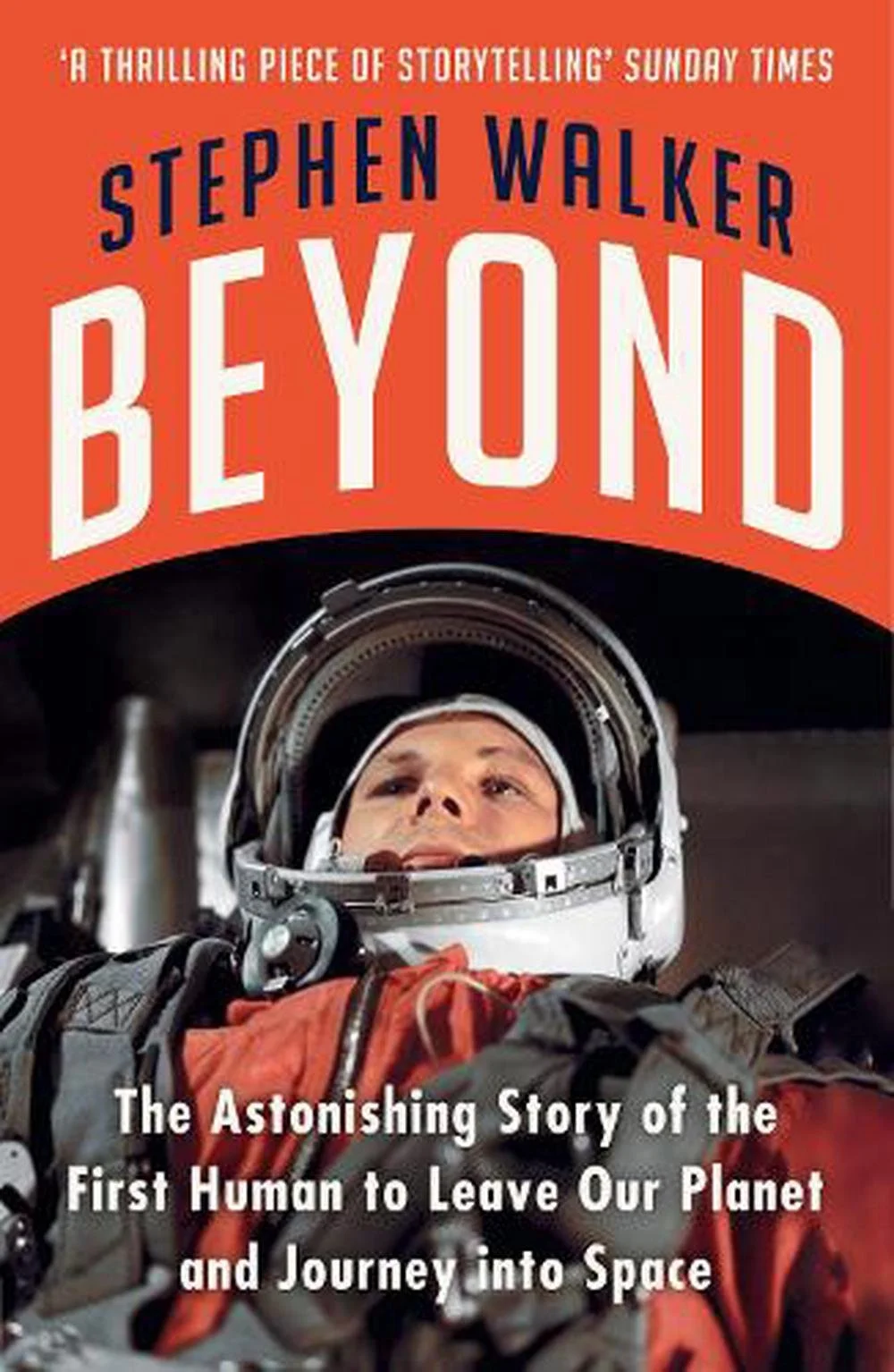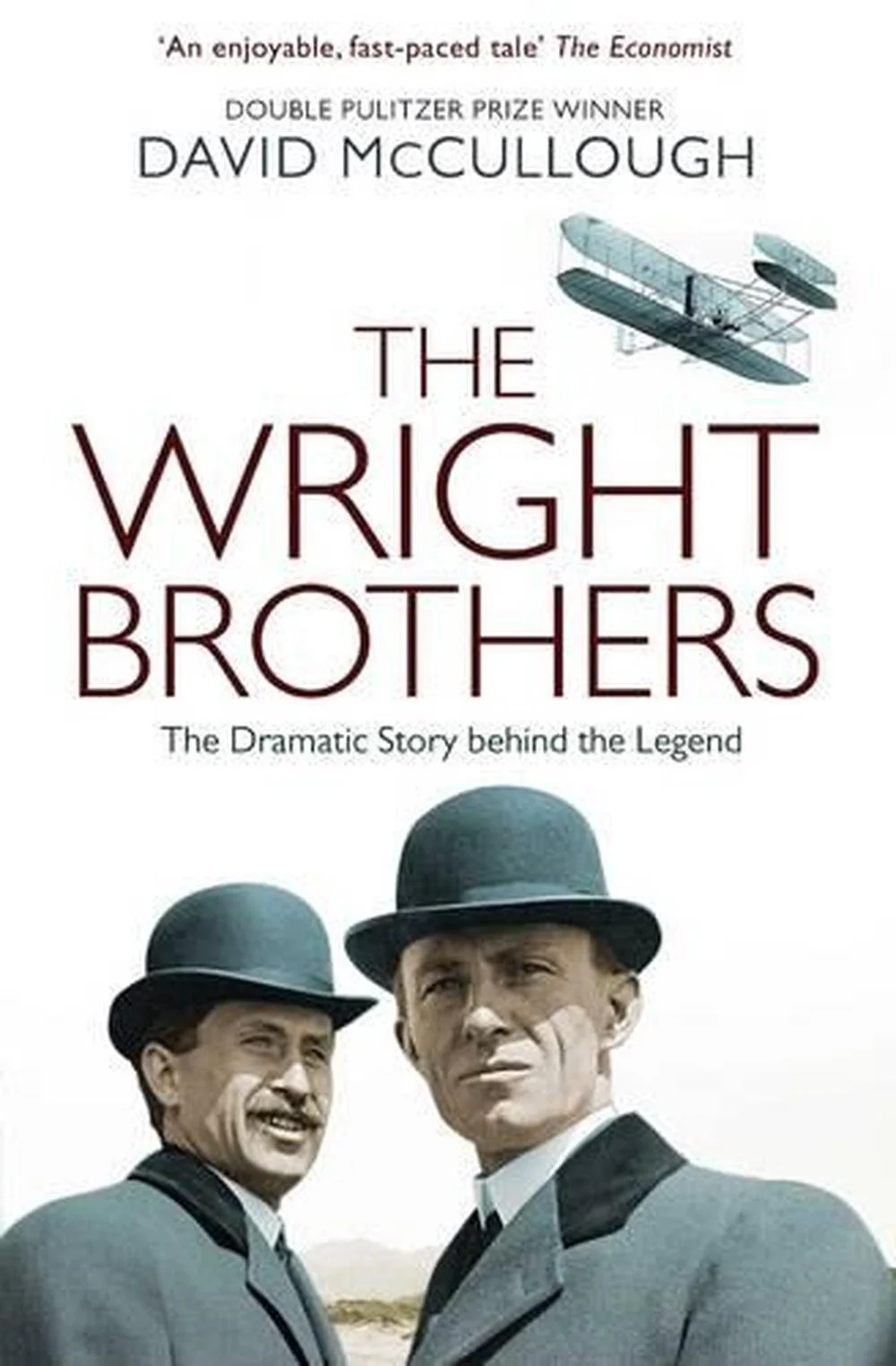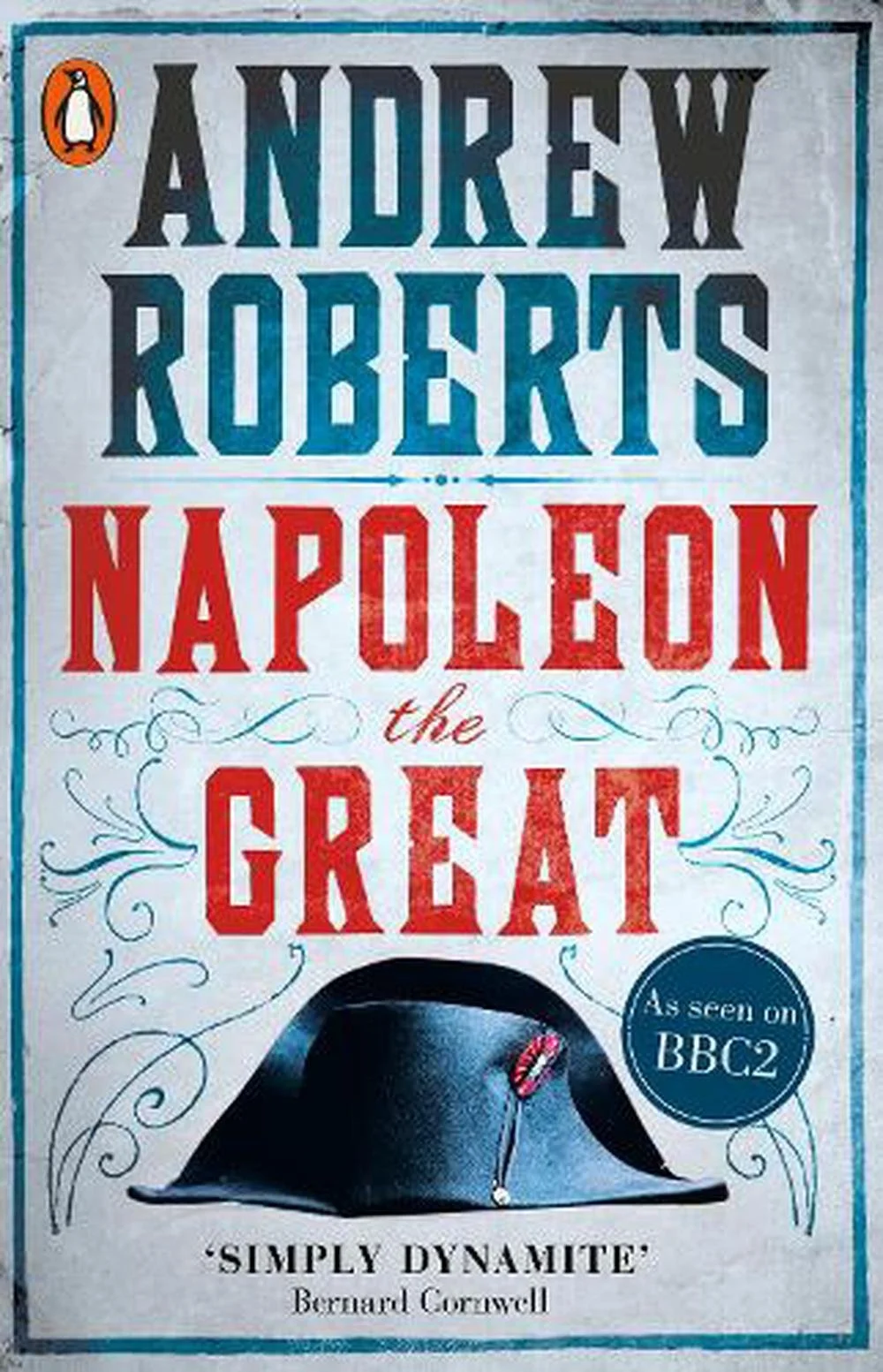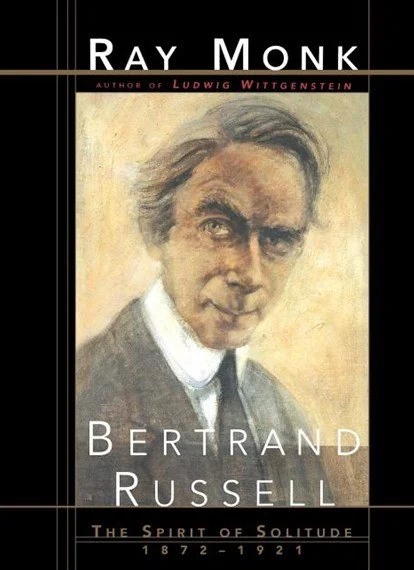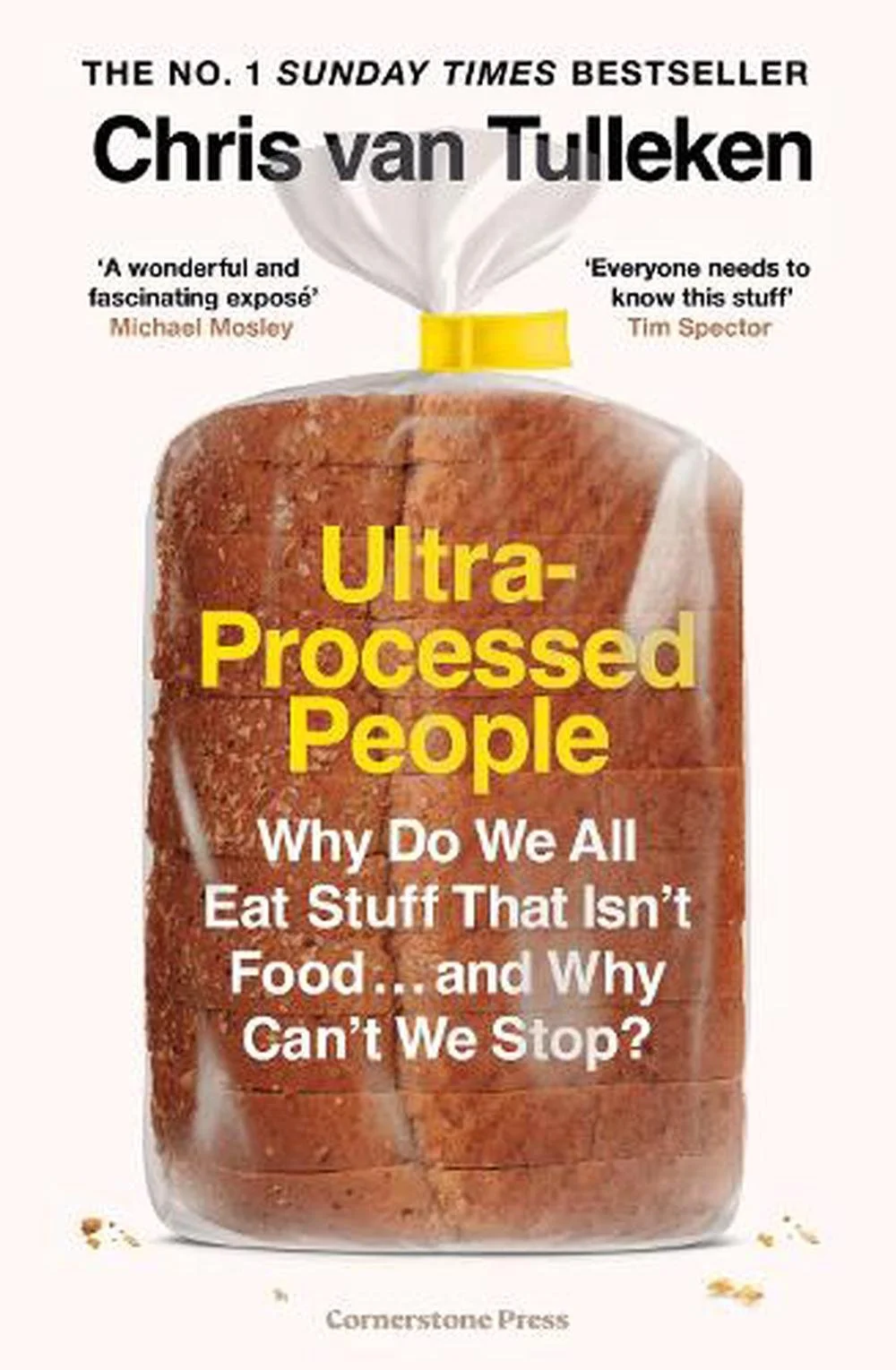Some books I have enjoyed… and some books I am reading on the trip
Midnight in Chernobyl by Adam Higginbotham: Unbelievable account of the Chernobyl disaster. If you have seen the HBO series (which I highly recommend) then this book is a great accompaniment. There is a lot to learn about projects here as well – leadership being pressured to provide results which are impossible, status reports which are completely unreliable, and finally heroic efforts to avert a disaster.
The Perfect Weapon by David Sanger / Sandworm by Andy Greenberg: I read these two books back-to-back to get some level of understanding of the cyber wars that are going on - and will only become more prevalent. David Sanger is the New York Times cyber security journalist, and he brings an overarching geopolitical and economic lens to the topic. Andy Greenberg is a senior writer for Wired magazine. He hangs the narrative on the search for and impact of a Russian cyber warfare unit. I have purchased but have not yet read a third book on this topic called ‘This is how they tell me the world ends’ which was also well reviewed).
Why We Sleep by Matthew Walker: A great insight into - as the title suggests - why we sleep. It explains why we sleep, what happens when we sleep and what happens to us if we cut corners on sleep. An eye opener (pun intended). I have listened to a podcast which challenges some of the book, but I think that there is still so much in here to learn (and, at the end of the day Matthew Walker is at Harvard and is probably not playing fast and loose with facts).
The Order of Time by Carlo Rovelli: A physicist explains that time is just what we experience it as. Time, in fact, from a theoretical perspective, is very different. I also recommend searching out podcasts for his talks.
Caste by Isabel Wilkerson: The author re-frames racism as a caste issue - it is not a prejudice about hate but about what caste you are in society.
Humankind: A Hopeful History by Rutger Bregman: The author revisits many of the good and bad moments in history and looks for the positive. It is very well done.
The Power Broker by Robert Caro: This book came out in the early 1970s. It was the career making book of Robert Caro who went on to write his four-part biography of Lyndon Johnson (which, by the way, many people are awaiting for the fifth and final instalment. Given that Robert Caro is 85 years old, there are people worried that he will not finish it before he drops off). The Power Broker is a biography of Robert Moses who shaped New York as we know it. He built the roads, the parks, the housing, the stadiums... He was unelected, yet held enormous power. This book is a study of power - how one can take power, what one does with power and what power does to one. Which, by the way is the same theme of the Lyndon Johnson biography. Just that this one is about 1,050 pages whereas the Johnson one is about 3,000 pages for the first four parts. You cannot get this as an e-book, only old fashioned paper. It is considered one of the greatest books of non-fiction. I thought it was amazing.
Guns of August by Barbara Tuchman: A seminal book on the origins of World War I. Her basic argument is that the great powers bumbled into a war that they really did not want. John Kennedy famously gave the book to all of his cabinet members, and was often on his mind during the Cuban Missile Crisis. It is one of the few books that I have read twice – and I think I should re-read.
Team of Rivals by Doris Kearns Goodwin: A biography of Abraham Lincoln. There are a lot of biographies of Lincoln out there, so I cannot compare them, but I can say that this is one of my most favourite books ever. Lincoln was such an amazing man. There are so many lessons in life on how to be a better person that you can take away from this book.
Behave by Robert Sapolsky: The author seeks to explain what makes us behave in such a way. He puts different time horizons on the explanation - evolution, genetic, family and social. It is a summary of his life's work which is worth reading. You can also hear him on an episode of the podcast ‘Leading’ (hosted by Rory Stewart and Alistair Campbell) discussing his work.
Thinking, Fast and Slow by Daniel Kahneman: Another book where the author summarises his life's work. Daniel Kahneman is a psychologist who won the Nobel prize in economics. He has no time for that underlying assumption in economics that we are 'rational' creatures. He describes how we make decisions, which is not always very rational. Get past the first 80 pages where he seems to spend a bit too much time on Type 1 and Type 2 decisions, and get to his reflections on what was he and his collaborator Amos Tversky's life work.
Say Nothing by Patrick Radden Keefe: Tells the story of Jean McConville who was kidnapped and murdered by the IRA in 1972 in Belfast. She was a 38 year old mother of 10 (it is Ireland...) whose husband had recently died, who was living in poverty (it is Ireland... ) and was accused of conspiring with the British Army. It looks at her story and how it weaves into the history and personal stories of some of the key players from the era. Heartbreaking.
Ghosts of the Tsunami by Richard Lloyd Parry: When the Tsunami hit Japan in 2011 about 20,000 people died. Of those that died there were 75 children that were in school - and 74 of these children died at one school. When a tsunami hits in Japan, being a child in school is basically statistically the safest place to be. So, what went wrong at this school for these children to die? The book looks at what happened, and how the tragedy tested the cultural response to suffering in Japan.
Nuclear Folly by Serhii Plokhy: A recent history of the Cuban Missile Crisis. It is a page turner. It provides a great insight into the role of the two leaders in the crisis – how it was their folly that got us into the crisis and their humanity that got us out of the crisis. As they say, history does not repeat, but it does rhyme - it is easy to image the world heading into another similar crisis in the near future.
Empire of Pain by Patrick Radden Keefe: A history of the opioid crisis in the United States, and in particular the role of the Sackler family in creating the crisis. While the Sackler’s are painted as the bad guys, there is plenty of bad to go around – the weakness of regulatory bodies and the influence of politicians over the judicial process stand out. The first part of a mini biography of the founder Arthur Sackler, which could be a stand alone book on its own. While his story is interesting, the story really takes off when he buys Purdue Pharma as a gift for his brothers.
Beyond by Stephen Walker: This is the story of the race between the US and Russia to get the first man in space. It is a remarkable story how the Russians were basically willing to take more risks than the US to get there first because the Russians did not have a free media and so could conceal any tragedies. The detail of Gagarin’s actual flight is remarkable. Imagine being the first person into space and landing back on earth on a farm in nowhere-Russia and asking a grandmother and her granddaughter if they had a phone for you to call in your whereabouts. And, they say, well no, we do not have a phone but there is one in a nearby town – can you please help to saddle up the horse and cart so we can take you there.
American Prometheus by Kai Bird and Martin Sherwin: This is the definitive biography of Robert Oppenheimer. Christopher Nolan (Batman, etc.) based his film biopic of Oppenheimer on this book. In fairness, this is one for fans of Oppenheimer.
Powers and Thrones by Dan Jones: This is a history of the middle ages (from the fall of the Roman empire to the Renaissance). I have ready a couple of histories of the middle ages and have just given up. Too many knights and monks to be able to make sense of it all. This book, while having all the characters, finds the right level between too little detail and too much detail. One of my favourites.
The Wright Brothers by David McCullough: What an amazing story of two people without any external support who invented the powered aircraft. They would put it down to growing up in a house which instilled in them an endless curiosity and joy of learning. While they were criticised for how they managed their patent in the years after their invention, the story of their invention is inspiring.
Lost Connections by Johann Hari: Johann Hari was on anti-depressants from his teen years into his thirties. He then stopped to ask why he is being medicated for his depression, and wonders what else can he do to help himself. While he is not denying the role of medication in addressing depression, his book tries to shift the focus to what we can do beyond medication to reduce depression. Basically, if your life is disconnected (the title) and is shit, then you will be depressed, so why not try to address some of those connections and see if that helps.
Righteous Mind by Jonathan Haidt: Anything by Jonathan Haidt is worth reading. This book is an earlier work of his, and looks at why we have entrenched political differences. He looks at about six different values and how each side of politics sees these values and emphasises different values within this set. For example, for the value of fairness, a left leaning person sees it as everyone getting a fair opportunity, while a right leaning person sees it as it is fair that you get what you earn. While it is US centric, there is a lot to learn. Ezra Klein’s book ‘Why we’re polarized’ covers a similar topic from a different perspective. It is also well worth a read.
Behind the Beautiful Forevers by Katherine Boo: One of my favourite books ever. Katherine Boo spent about three years making near-daily visits to the Annawadi slum opposite Mumbai airport. She got to know the people and wrote about their lives. It is not a book with an air of ‘how miserable’ their lives are, but more a factual account (she does not even change names) of what life is like in a slum. If the book was only to marvel at the misery, she would not have had to visit so much and get to know everyone. It is a story of a life that we see but have no insight into when we visit India.
Think Again by Adam Grant: This is my favourite book of his that I have read. The purpose of the book is to be open to ideas and learning. To unlearn to learn. It is perhaps the book that gave me the most to think about in terms of what makes projects successful / unsuccessful.
The Origins of Political Order by Francis Fukuyama: Provides a theory of how we formed into nation states. How did we rise above the family and then tribal unit to have an identity, governance and laws at the national level – and why some countries have never achieved that. There are other books on this topic, but I did enjoy this one.
Vietnam by Max Hastings: Just a magnificent book on the history of the Vietnam war. It was really interesting to see how the domestic political situation at home really affected the morale and ability of the US to prosecute the war – there was a really hard line before and after 1968. People that served before 1968 who then came back after 1968 did not recognise it as the same conflict. Hastings is critical of both sides – the folly of the US and the willingness of the Vietnamese to just squander lives.
The Making of the Atomic Bomb by Richard Rhodes: A definitive history of weaponising the atom from Marie Curie and Ernest Rutherford through to Oppenheimer and Paul Tibbets dropping the bomb from the Enola Gay. I really enjoyed learning about the different characters, such as Leo Szilard, Neils Bohr, Rober Oppenheimer and so on. A long book, but a classic that is worth reading.
The Anarchy by William Dalrymple: Is a remarkably deeply researched history of how the East India Company came into being, and how it transformed from a trading company on the edge of India into its colonial power. Just breathtaking.
Our Kids by Robert Putnam: Is based on the US, but there are still lessons and thoughts to be taken away. It describes the different opportunities for education and development available to children in concentric circles - their family, their family networks, their schools and their communities. He shows how high academic performance in primary school is not a good indicator of educational success at the end of school. The socio-economic status is far more important. He describes why children (in the US) struggle to break out of their socio-economic situation and achieve more academically. Quite depressing.
Profiles in Ignorance by Andy Borowitz: The author is a satirist for the New Yorker, so he brings an amusing writing style to a serious topic about how US politicians either became dumber or decided that it was best to appear dumber (different for different politicians). While I find myself laughing out loud, it is a sad book. Hopefully the tide will turn.
4,000 Weeks by Oliver Burkeman: Oliver Burkeman’s book opens with the observation that if you live to eighty-years old, you will have about 4,000 weeks in your life. From this starting point, he steps off on a meta-self-help journey exploring our relationship with time and how we choose to use and experience it. He has concluded that he was chasing something unachievable – “nobody in the history of humanity has ever achieved ‘work-life balance’ he writes, “and you certainly won’t get there by copying the ‘six things successful people do before 7 a.m.’” He feels we are (to quote Marilynne Robinson) in a state of ‘joyless urgency’ with the constant feeling that we ought to be getting more done. That we are we pushing our joy into some future point in time where the hoped-for benefit may never come. And so, he wants to encourage us to accept that we cannot master time and do it all.
The Crisis of Democratic Capitalism by Martin Wolf: Martin Wolf is a long-time and much respected journalist for the Financial Times. He has written this book to try and explain the risks to democratic / capitalist government. His argument is that a long period of low growth and a decline in real wages has made many people distrustful of their governments. The government look like elites who are in it for themselves. This has led to the rise of populism, which is threatening democracy. He points to the balance between capitalism being about the individual gain and democracy being about the collective gain – and that these are competing perspectives which can be difficult to balance.
How to be Perfect by Michael Schur: Michael Schur is a creator / producer of several TV shows including The Office (US version), Parks and Recreation and The Good Place. The last of these shows sits on a foundation of existential and philosophical questions about what it means to be good. Coming out of this, he has written a book which looks at philosophy / ethics and seeks to answer the question ‘how to be good’. I have an affinity for Michael Schur, as I sometimes feel like am one of the few people left who seems to care about rules and being kind (though there are many people who would argue that I fail on the latter). So, I really enjoyed his tour through philosophy and his reflections. Another book which I really need to re-read to absorb it.
Recollections of a Bleeding Heart by Don Watson: A biography of Paul Keating’s years as Prime Minister by Don Watson who was his speech writer. I read this back in about 2004 and is (again) a book I need to re-read. Keating is such a remarkable man – an uneducated polymath with a very sharp tongue. There were many insights that I had not thought about at the time. How the Prime Minister’s Office (PMO) sought to drive the national agenda and conversation rather than let the media and pundits drive it. How Keating was perhaps happiest when his back was to the wall and he was fighting his enemies – and that he could reflect that he was cursed to have such hopeless enemies. One of the key contentions of the book was the Keating was over it by the time he won his own election as Prime Minister in 1993. Something which Keating strongly refutes. Also worth reading is Don Watson’s book on the death of public language (‘Death Sentence: The Decay of Public Language’).
The Great War for Civilisation by Robert Fisk: Robert Fisk was a long-time journalist for The Independent newspaper in the UK. He lived in Lebanon and wrote extensively about the Middle East. He was one of only a few journalists who ever interviewed Bin Laden. He was left leaning and was open about his biases (he died a few years ago, and The Economist had an article on his passing, which while praising him was also dismissive of his politics and approach). This book is his magnum opus. It goes through the Middle East country by country. I read this one at Christmas in 2005 (you need a holiday to get through this one). The chapter on Algeria was just about unreadable, it was just so shocking.
From Beirut to Jerusalem by Thomas Friedman: I wonder how this book has aged. It is 30 years since I read it. However, it was a fantastic primer on Israel and its neighbours. And, given that history has a habit of repeating itself in that area, it probably holds up quite well as an excellent summary of the challenges that the region faces (and why).
Valley of Death by Ted Morgan: This follows the story of the French being ousted from Vietnam in the battle of Dien Bien Phu. So much folly from the French and so much sacrifice from the Vietnamese. It is a wonder that the US did not look at this battle and learn all they needed to learn - and turn away from Vietnam rather than step in and take over from the French. There was just so much suffering on each side.
Rubicon by Tom Holland: If you listen to the podcast ‘The Rest is History’ then you will be familiar with Tom Holland. I have read several of his books and have found this one to be the most accessible. It just brings to life what life (might have been) like in ancient Rome.
Bury Me Standing by Isabel Fonseca: Is a history of the Roma / Gypsy people. The title comes from the expression ‘I have been on my knees all my life, bury me standing’. For someone who only knew of ‘gypsies’ from the traveller stories when backpacking around Europe in the early 1990s, it certainly opened my eyes. If nothing else, it taught me not to judge but to learn.
Bury My Heart at Wounded Knee by Dee Brown: This is a book from the 1970s which is a bit of a classic in Native American history. The basic pattern was to run the Native Americans off their land into a new area, and then when oil or minerals were discovered in that area to run them off again – this repeated until there was no where left to go but some small reservations. Another heartbreaking story.
Paul Robeson A Biography by Martin Duberman: This is a very sympathetic biography of Paul Robeson by a left-leaning fellow traveller. I think that Paul Robeson is one of the most remarkable men in modern times. He is the son of a slave who studied law at Rutgers University and shone in academia, sports and the arts. He used to be beaten up by his own team when playing American football. After university, he chose to work in the arts because that was where he could be most accepted as a black man. He had many failings, such as not distancing himself from the Soviet Union when the horrors of the 1930s purges became well known – and he was a serial philanderer. However, he was also a tireless activist for the ordinary man, and gave up his fame and his freedom for what he believed in. Google the image of him singing at the Sydney Opera House. He was in Australia towards the end of his life, earning a little money on a singing tour, when he went to the Sydney Opera House while it was under construction. He said he wanted to be the first to sing there, and to sing for the workers. Which is exactly what he did. I heard a story many years ago from one of the workers who was working on the Opera House when Paul Robeson sang on the construction site for them, and he was in tears telling the story of what it meant to him.
Napoleon the Great by Andrew Roberts: There are apparently as many biographies of Napoleon as there have been days since he died. I have read two of them – one from an author who disliked Napoleon and one who admired him. This is the latter. There is no way to put aside the pain and suffering caused by Napoleon, but to me there is still space to admire his capability. He was a self-taught polymath with a remarkable memory and amazing leadership qualities. He changed the way Europe was governed and how it fought its wars (no more getting a few men in the field to shoot at each other, he was all about mobilising the whole country for total war). And there was folly as he came undone with his march on Moscow (in addition to freezing and starving much of his army to death).
Clarence Darrow Attorney for the Damned by John Farrell: This is a biography of the very colourful lawyer Clarence Darrow who worked in the later nineteenth and early twentieth centuries. He fought the good fight, often representing clients who were disadvantaged by race, poverty or politics. He was famous for the Scopes Monkey trial where he defended a teacher who had taught evolution in school in 1925. What I recall struck me about the book was how many wrenching events there were that would have tested the fabric of society (for example. The bombing of the office of the Los Angeles Times). And I was really interested to read about Eugene Debs and his fight for working people through the Pullman rail strike and his opposition to WW1. I really got a sense of how little the safety and value of workers meant to the government and large corporations, and how these entities did not wake up to a set of values, but had values forced upon them by people like Eugene Debs.
Bertrand Russell by Ray Monk: It is interesting to read such a long biography (only the first part as well) where the author so truly dislikes his subject. Even through the lens of Ray Monk’s disliking of Russell there is much to admire. A remarkably clever man who also fought the good fight in terms of humanity and peace. He was jailed for his opposition to WW1 and briefly jailed when he was 89 for his anti-nuclear protesting. In his 90s he was an outspoken critic of the Vietnam War (he was more pragmatic about WW2). He was another serial philanderer – I did enjoy when he returned from the US with a lady that he was engaged to and was not sure what to do about her coming back to the UK. He put her up at his mistress’s house. Clearly, while he had many fine points, he was not a perfect person. His most famous student was Ludwig Wittgenstein – I like this passage from a letter by Russell to his mistress (he always seemed to have a mistress) in 1912: he describes a visit from Wittgenstein that day: “[Wittgenstein] was talking about Beethoven—how a friend described going to Beethoven's door and hearing him ‘cursing, howling and singing’ over his new fugue; after a whole hour Beethoven at last came to the door, looking as if he had been fighting the devil, and having eaten nothing for 36 hours because his cook and parlour-maid had been away from his rage. That's the sort of man to be.” I like the sentiment about how to live passionately (not that I do). Not that Russell himself was advocating that, rather he was marvelling at Wittgenstein’s passion. Separately, Russell’s quote – from memory – is one of my favourites: “Three passions, simple but overwhelmingly strong, have governed my life; The longing for love, the search for knowledge and unbearable pity for the suffering of mankind”.
King of the World by David Remnick: This is a biography of Muhammad Ali by the person who would be voted least likely to write such a book. David Remnick is the editor of the New Yorker magazine and was its youngest ever editor. Prior to this, he sat down to write a book about the US in the 1960s. During his research he stumbled across more detail about the life of Muhammad Ali, and before you knew it, he had dropped the larger story and wrote this biography. It is one of my all-time favourite books. There is a theme with some of my books – a man who gave up everything for what he believed in. The story of his rise in boxing – taking on the mob dominated sport and their fighters such as the invincible Sonny Liston, to walking away from it all at the peak of his powers due to his objection to the war. And this objection was tied to his view on civil rights – ‘why should I go and fight the Viet Cong, they have never called me…’. Through all the noise, he was a great soul.
How Big Things Get Done by Bent Flyvbjerg and Dan Gardner: Bent Flyvbjerg has spent the last couple of decades building up a database of projects in terms of cost and time performance and benefit achievement. He summarises how abysmal many project performances are and provides his insights into why and what can be done about it. It was a great fact-based survey of what we often experience. It made me think about what we can do differently to improve projects.
Ultra-Processed People: The Science Behind Food That Isn't Food by Chris van Tulleken: The purpose of this book is to bring an awareness of food that is not food, but rather edible substances. Anything which has ‘modified this’ or ‘starch that’ in the ingredients. The author contends that our bodies cannot regulate processed foods well – for example, we do not get feedback on when we are full when eating processed foods. I did not really agree with his overall summary arguments, but the book did raise my awareness of eating non-foods. I have since tried to reduce eating anything which is not recognisable as food.
Killers of the Flower Moon by David Grann: The book that is the basis of the recent Martin Scorsese movie. At its core, it is a story of unbridled greed. Where Ernest Burkhart was willing to help kill off his extended family, up to and including his wife, in order to secure the heritance rights. His uncle, William Hale, orchestrated the plan which included killing people in the right sequence so that all the inheritance rights flowed to Ernest’s wife. And the story of the newly formed FBI seeking to build its reputation on the case. It is an easy page-turner which reads like fiction.
Fear is Just a Word: A Missing Daughter, a Violent Cartel, and a Mother's Quest for Vengeance by Azam Ahmed: Miriam Rodríguez is a fifty-something mother in Mexico with three young adult children. After the Zetas displaced the Gulf Cartel from their town of San Fernando, kidnappings and ransom became a money-spinner for the Zetas. Miriam’s youngest daughter was kidnapped, and though she paid the ransom, her daughter was murdered. The book follows Miriam’s journey of vengeance to ensure that anyone involved is either captured or killed. It is such an eye-opener of a book - to read what it is like living in what was a civil society, but which broke down into a lawless land where the state does not function and so can neither protect you in the first instance or seek justice after the fact. It made any of my small challenges seem trivial.
Nuclear War: A Scenario by Annie Jacobsen describes the minute-by-minute response to a nuclear launch targeting the United States. The book is based on many interviews with senior US military, defence industry, scientific and political leaders who together provide the steps from the moment a missile is launched. The key point is not which country launches the missile, but the US protocols for response – in this case the scenario has North Korea launching three missiles. Events move very quickly, and people have only minutes to make decisions which will end life as we know it. Many people are making decisions in those minutes knowing that they themselves will die in the coming minutes. The speed of events, the lack of perfect information and the horrific consequences are laid out, as well as the inevitable macro effect on our world. To think that this could happen. It is just frightening.
